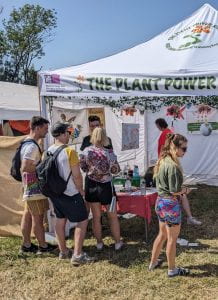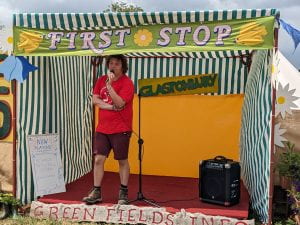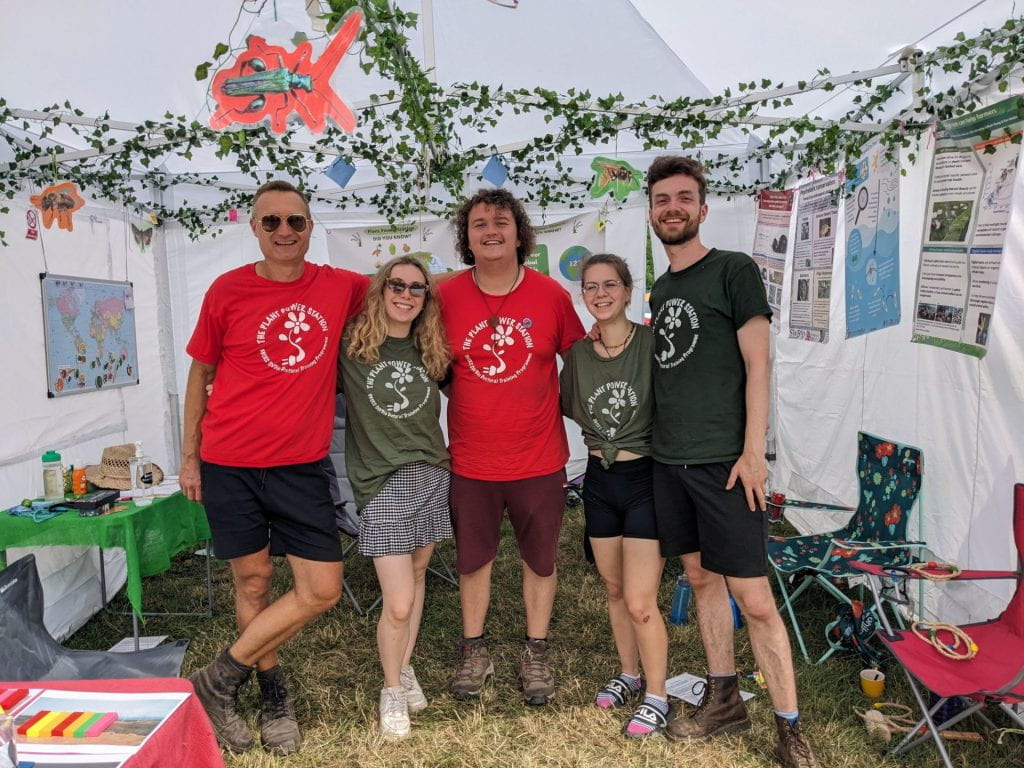 Glastonbury Festival is the most famous performing arts festival in the UK (and maybe the world). What many people don’t know, though, is that there is a wealth of scientific outreach which occurs there. Showcased in the festival’s Green Futures Field was a series of stalls sharing research from across Britain and Ireland. Among these stalls was the Plant Power Station – staffed by SWBio students and discussing the importance of environmental and agricultural sustainability for global food security.
Glastonbury Festival is the most famous performing arts festival in the UK (and maybe the world). What many people don’t know, though, is that there is a wealth of scientific outreach which occurs there. Showcased in the festival’s Green Futures Field was a series of stalls sharing research from across Britain and Ireland. Among these stalls was the Plant Power Station – staffed by SWBio students and discussing the importance of environmental and agricultural sustainability for global food security.
This year, headed by the Agriculture and Environment research theme champion Prof Dan Bebber, the station hosted a series of games to showcase the DTP’s research into plant biology, sustainability, conservation, and farming. Bebber – supported by students Ellie Murphy, Daniel Goodwin, Callum Young and Dasha Anderson – engaged with hundreds of festival-goers. And, of course, the team took great advantage of the entertainment on offer across the site!
As part of the Plant Power Station, students shared posters linking their own research to the stall’s theme. This involved presentations on psychedelic conservation, the neuroscience of food insecurity, and the role of virtual reality in agriculture. In addition to these diverse topics, there were multiple activities aimed at engaging the public with competitive games and quizzes. Included were:
Game 1: Sustainability Quiz. Festival-goers would compete on a ring-toss game – each throw done to answer a quiz question on the environment. Accurate answers (and throws) would score points. Each day, a leaderboard would showcase the highest scorer. This attracted frequently returning visitors, who learned about the dangers of monoculture, the global standards for clean energy, and the risks posed by cigarettes on ocean pollution.

Game 2: Pollination Station. ‘Fancy a sniff?’ came the cry of our students, as visitors wondered past the stall. Invariably, this attracted a confused glance in their direction as they beckoned people over. On a tray were a host of essential oils, each linked to a flower targeted by pollinators in the UK and abroad. Glad to be smelling something as pleasant as flowers in an otherwise musty festival-site, guests would be engaged in a conversation about pollinator populations and how they should be conserved. In addition to bees, we discussed moths, butterflies, wasps and even lemurs as major pollinators.
Game 3: Where does your food come from? A good question which is harder to answer than one may think. Visitors would stand before a magnetic world map, and be handed a magnets depicting fruit and vegetables. Guests were then asked to guess where the ancestor of this product originated from. This gentle quiz, in the merciful shade of the gazebo, helped to depict the spread of plants across the globe. It also showed that many of our crops are grown in environments far removed from their native home – the message of this was to each participant’s discretion.
In addition to these games were plenty of chances for debate with the public about science and policy. Eager activists would discuss the ethics of GM crops, large-scale farming and of scientific intervention internationally. Not only did this help SWBio students to share their own thinking about science in society, it helped to shape their ideas on the topic of ethics in science. This bidirectional relationship with the public was invaluable and helped them to develop as researchers. Moreover, it provided them with a unique public engagement opportunity which can be generalised to a wealth of different audiences and environments.
And, of course, they had plenty opportunity to explore Glastonbury. As a team they were lucky enough to enjoy performances by Maneskin, Lana Del Rey, Faithless and Elton John. Certainly, this won’t be an experience they will soon forget.

